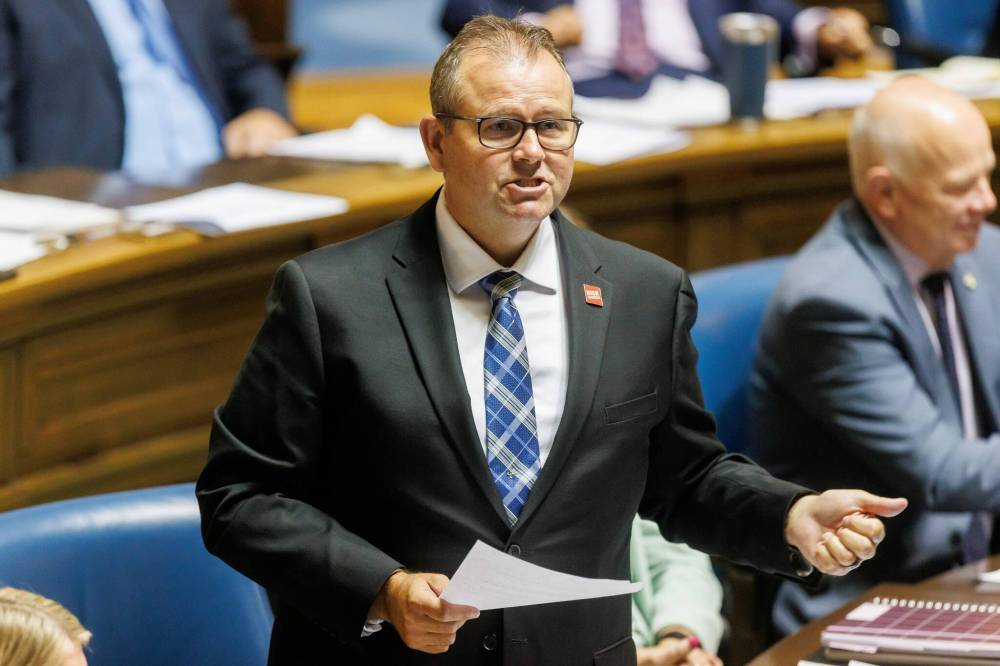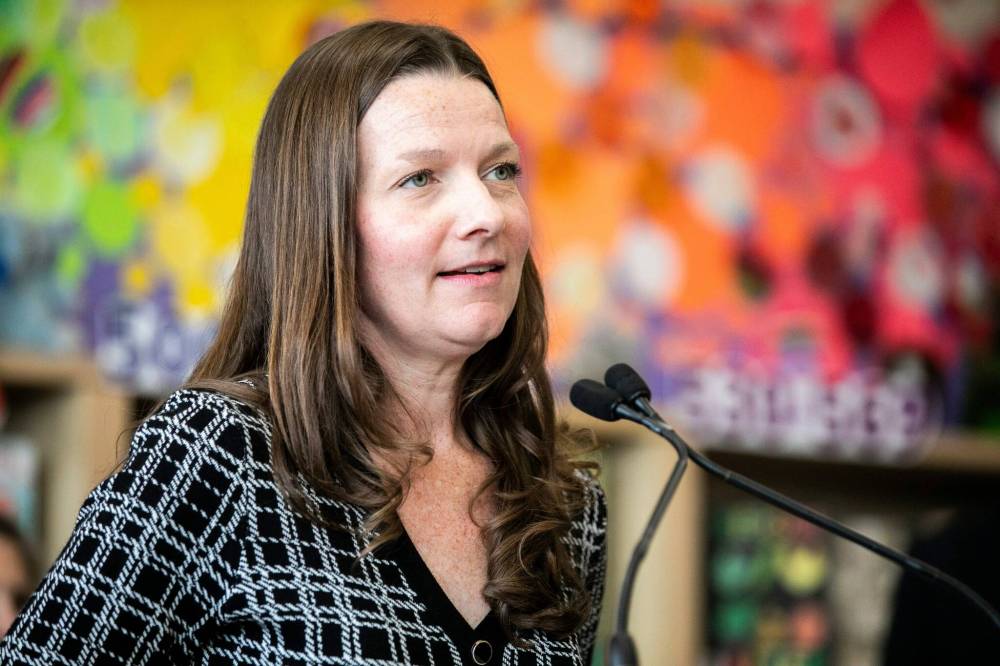Teacher registry ready for launch
Advertisement
Read this article for free:
or
Already have an account? Log in here »
We need your support!
Local journalism needs your support!
As we navigate through unprecedented times, our journalists are working harder than ever to bring you the latest local updates to keep you safe and informed.
Now, more than ever, we need your support.
Starting at $14.99 plus taxes every four weeks you can access your Brandon Sun online and full access to all content as it appears on our website.
Subscribe Nowor call circulation directly at (204) 727-0527.
Your pledge helps to ensure we provide the news that matters most to your community!
Read unlimited articles for free today:
or
Already have an account? Log in here »
WINNIPEG — A beta version of Manitoba’s teacher registry will be available on the first Monday of the new year — a popular post-holiday return date for many workers that will double as the inaugural commissioner’s first official day on the job.
As of Jan. 6, the digital database will include full names of anyone who has entered the profession, dating back to 1960.
“You’ll be able to look up teachers, their certificate, what class it is and whether or not it’s in good standing,” Tracy Schmidt, the acting minister of education, told the Winnipeg Free Press.

Former education minister Wayne Ewasko, now the interim leader of the Opposition Progressive Conservatives, introduced a bill in 2023 to create a government-appointed position to oversee the prevention and policing of misconduct among teachers. (Winnipeg Free Press)
The Manitoba Teachers’ Society revealed insider details about the imminent launch, including a formal professional disciplinary process that will accompany it, in an updated guide for members this week.
“The province will begin looking at defining competency standards for teachers with the hopes of adding more details on this later in 2025,” states an excerpt of a Q-and-A webpage for teachers who work in the kindergarten-to-Grade 12 system.
Teachers are being asked to contact the union if they hear from commissioner Bobbi Taillefer with regards to a complaint or certification review.
Complaints about teachers have historically been dealt with behind closed doors at the employer and union levels. The province has become involved in serious cases, although little to no information about outcomes is currently made public.
New legislative changes seek to make such investigations more independent and improve transparency surrounding training, status and disciplinary records.
“We can have that due process for teachers, and we can ensure the safety of students at the same time,” said Nathan Martindale, president of the Manitoba Teachers’ Society.
“I’m hopeful that (the coming changes) can achieve both, but we’ll have to wait and see.”
Former education minister Wayne Ewasko, now the leader of the Opposition Tories, introduced a bill in 2023 to create a government-appointed position to oversee the prevention and policing of misconduct.
The NDP pledged to follow through with the amendments after winning last year’s election.
Taillefer, a francophone teacher from Winnipeg who has worked in various union support and management roles over the last 25 years, was tapped to lead the work.
She will have the power to close matters or investigate them, be it through a public hearing in front of a panel of teachers, school board representatives and members of the public, or otherwise.
Details have been hammered out amid a high-profile criminal investigation into Kelsey McKay, a phys-ed teacher and high school football coach who worked in Winnipeg.
McKay, who was found to have wielded his influence to manipulate and sexually groom vulnerable students, was sentenced to 20 years in prison in October.
The teachers union initially argued that egregious misconduct was made public through the court system, and raised concerns that members would be exposed to “frivolous and malicious complaints” under the new system.

MTS has advocated for revisions to the legislation.
Among the union’s requests, it has been lobbying to: limit the public registry to names and teacher certificate status; ban anonymous complaints; and keep open investigations confidential while ensuring teachers are on paid leave during them.
Cameron Hauseman, an associate professor of educational administration at the University of Manitoba, said there is little point in moving ahead with the project if the province is heavily influenced by the union.
“Having teachers police themselves defeats the goals of the legislation,” Hauseman said, noting that it was introduced because the current self-regulating system has been proven to lack transparency and accountability.
As far as he is concerned, if the government accepts all of the union’s demands, the money for this initiative would be far better spent on classroom instruction.
Union staff met with Taillefer and government officials on Nov. 8 to discuss the registry rollout, per a union guide that was published on Monday.
It indicates the union shared concerns about the registry providing members with “culturally safe practices,” and reiterated its stance that the majority of panel committee members who make disciplinary decisions should hold teaching certificates.
Schmidt said the NDP government collaborates with all sectors affected by changing legislation.
“By and large, the profession of teaching in Manitoba is credible, professional and puts the safety of kids first but we also know that there are outlying situations that need official oversight,” she said, adding her office is working with MTS and other stakeholders to ensure the rollout accomplishes the legislation’s goals to protect children, keep families informed, and improve transparency overall.
Meanwhile, members can apply to the education department to request a former name — for instance, a transgender or non-binary educator’s “dead name” — be excluded on the website.
» Winnipeg Free Press
